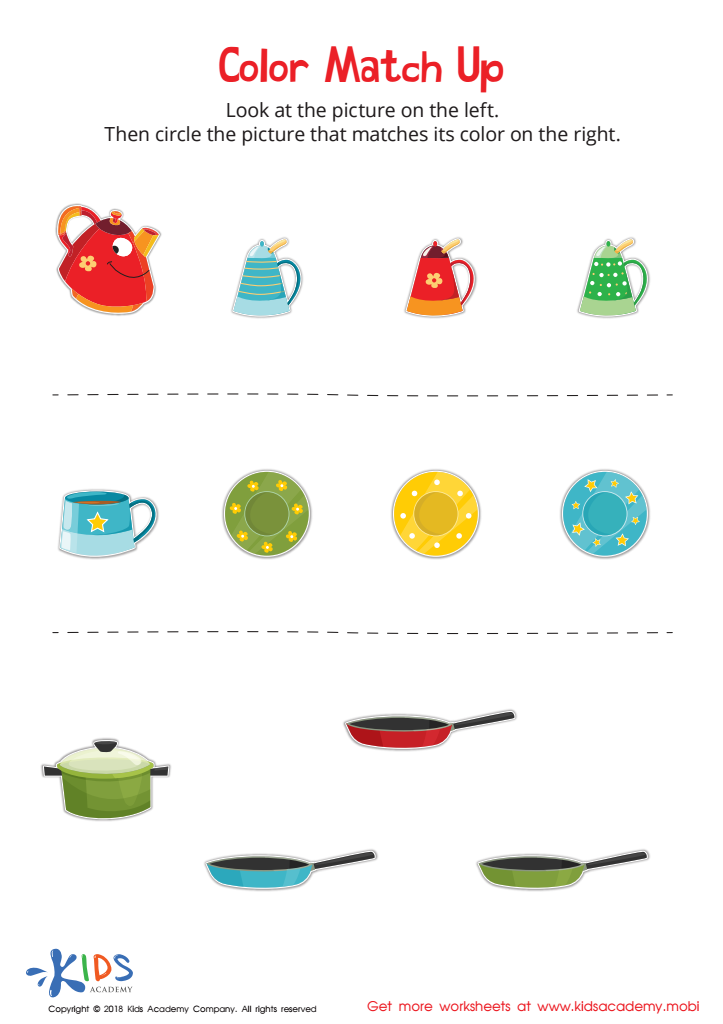Matching skills Matching Worksheets for 4-Year-Olds
6 filtered results
-
From - To
Enhance your 4-year-old's cognitive development with our engaging Matching Skills Worksheets! Designed specifically for early learners, these printable activities help children build essential matching skills by connecting images, objects, and shapes. Each colorful worksheet promotes critical thinking, visual recognition, and concentration, making learning enjoyable and effective. Parents and educators can easily print these resources for at-home or classroom use, fostering essential early math skills while keeping young minds active. By encouraging your child to match similar items, you're laying a strong foundation for future learning. Explore our wide variety of worksheets today and watch your child’s confidence grow!
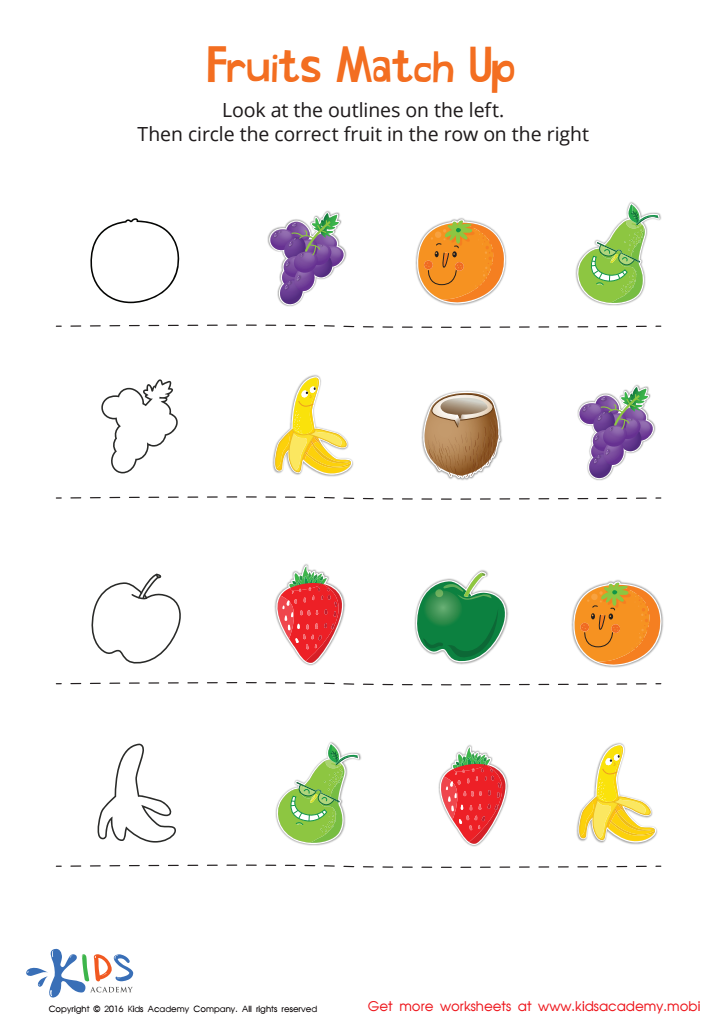

Fruits Match Up Worksheet
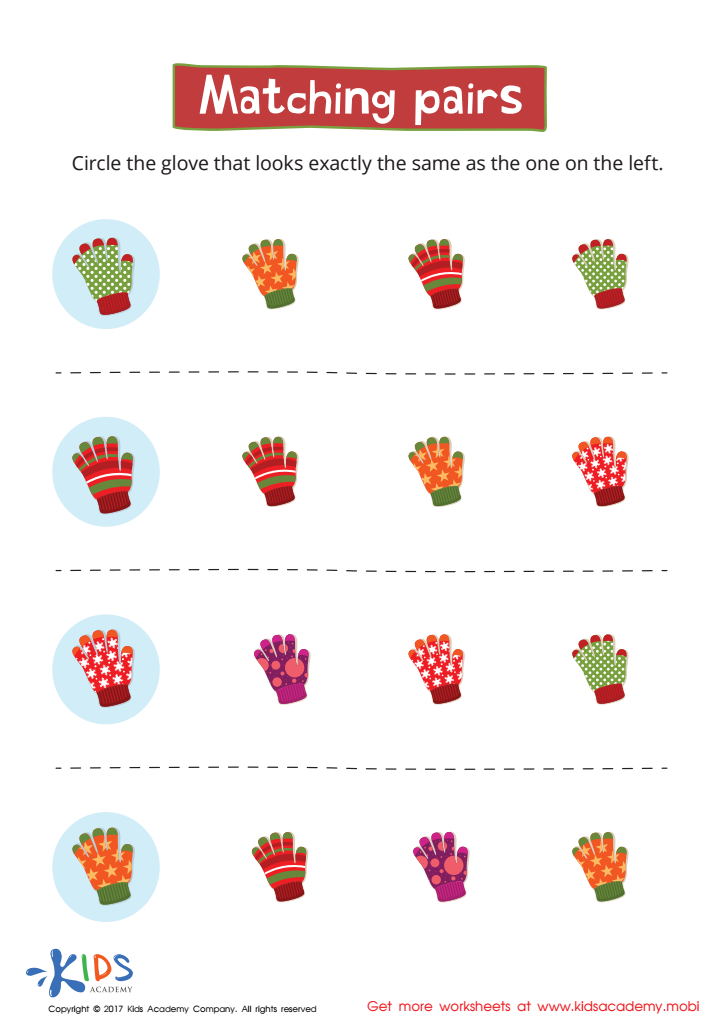

Matching: Matching Pairs Worksheet
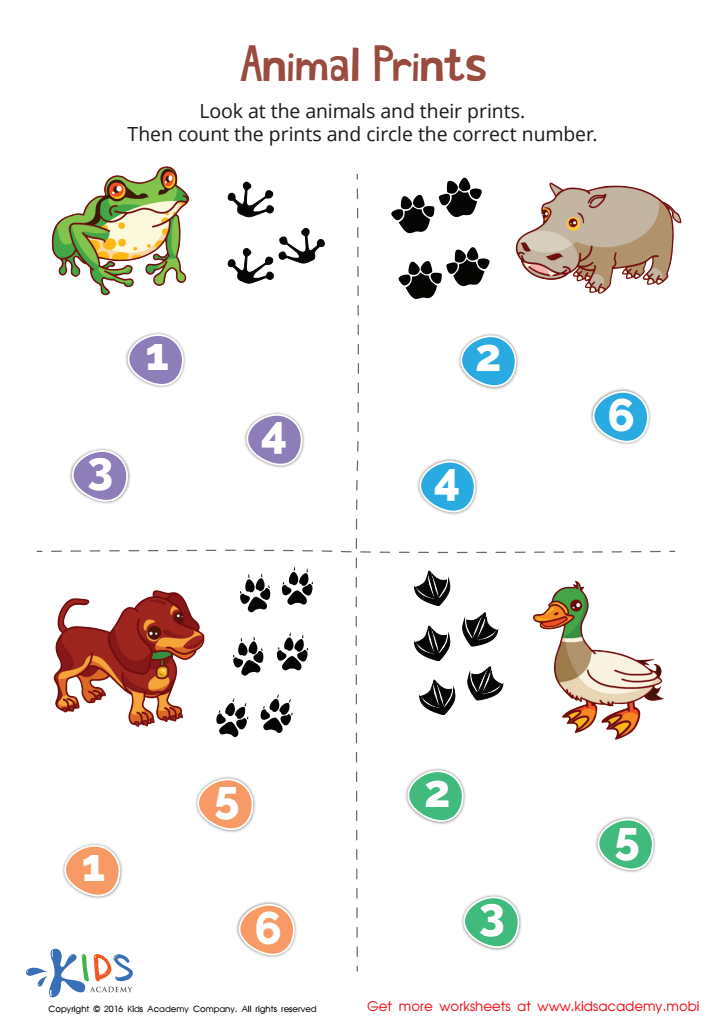

Animal Prints Match-Up Worksheet
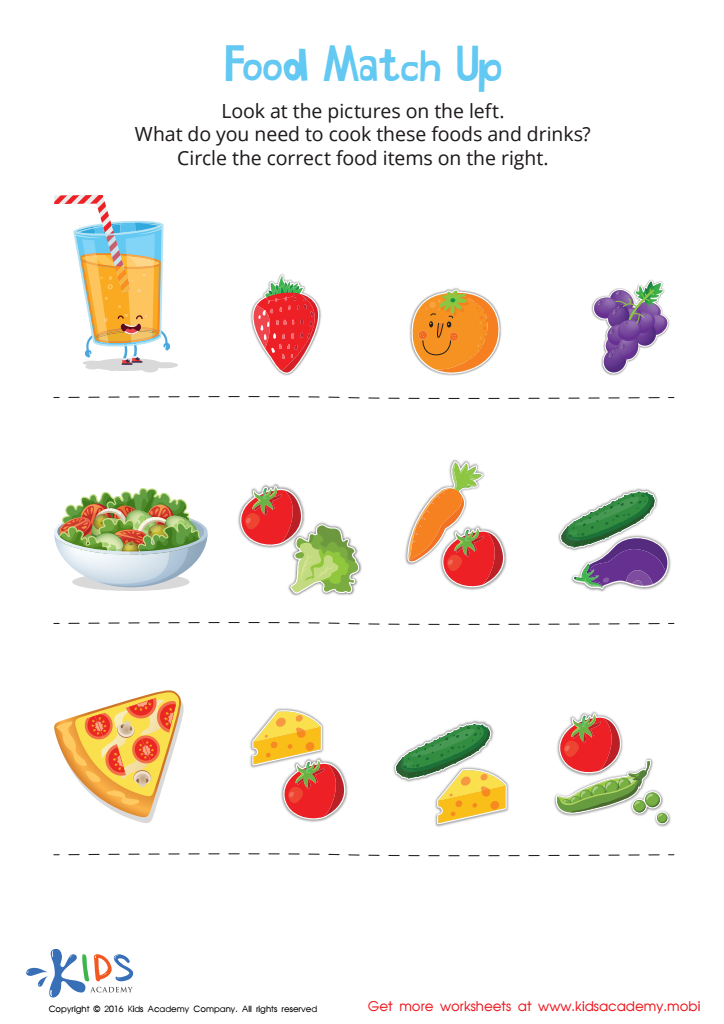

Food Match Up Worksheet
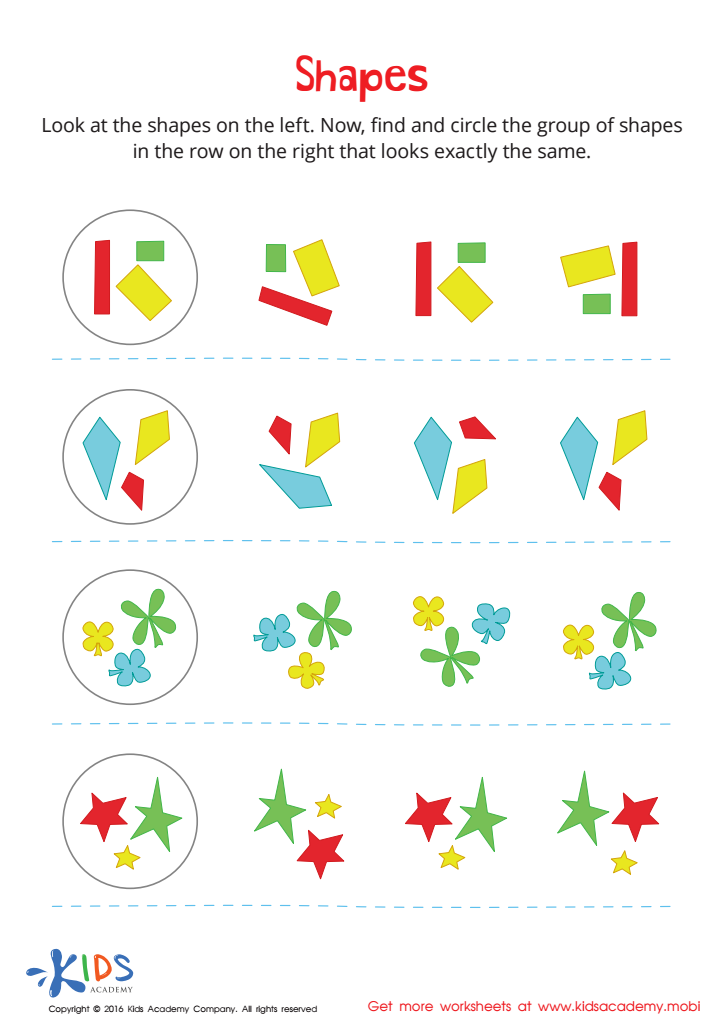

Shapes Worksheet
Matching skills are essential for 4-year-olds as they lay the foundation for critical cognitive development. At this age, children are naturally curious and eager to explore their environment, making it an ideal time to engage them in activities that promote matching skills, such as sorting shapes, colors, or objects. These activities enhance their ability to recognize similarities and differences, a fundamental cognitive process that aids in higher-level thinking.
By developing matching skills, children improve their memory and focus, which are crucial for later academic success. Moreover, engaging in matching games can enhance language development, as children learn to describe and categorize objects, fostering vocabulary growth.
For parents and teachers, promoting matching skills not only helps prepare children for structured learning but also supports social skills as they often engage in cooperative play with peers. This interaction promotes turn-taking, teamwork, and communication, which are essential for emotional and social development.
Incorporating matching activities into daily routines or classroom settings creates a fun and immersive learning experience. By prioritizing these skills, caregivers contribute significantly to their child's foundational learning experiences, ensuring that they are well-equipped for the transitions ahead in their educational journey.
 Assign to My Students
Assign to My Students

